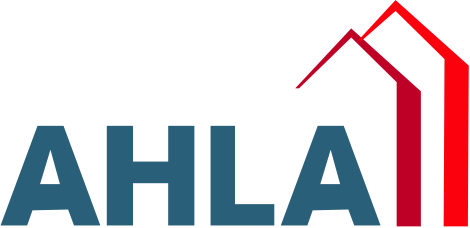First in Series of 12 City-Level Reports on Major U.S. Markets; Five Phoenix ZIP codes drive 19% of Airbnb’s Phoenix area revenue.
Washington, D.C., March 23, 2016 – Today the American Hotel & Lodging Association (AH&LA) released Phase II of a study conducted by the Pennsylvania State University School of Hospitality Management that provides a detailed analysis of the commercial activity taking place in Phoenix on Airbnb, one of the most trafficked short-term rental websites.
The study builds on the national survey released earlier this year that shows a troubling trend: a growing number of commercial operators are using Airbnb to run illicit and illegal hotels that compromise consumer safety and the security of neighborhoods.
Key findings:
- The overwhelming majority of Airbnb’s Phoenix revenue comes from hosts renting units 30 days or more, indicating these are not occasional renters:
- 85% of operators listed properties for rent more than 30 days per year, accounting for more than $41 million in revenue for Airbnb in Phoenix.
- 14% of operators listed properties for rent more than half the year (180 days), accounting for more than $9 million in revenue for the company.
- Multi-unit operators accounting for 14% of hosts in Phoenix, drove 40% of revenue in the metropolitan area – over $17 million last year.
- The five Phoenix ZIP codes with the most properties listed on Airbnb generated almost $8 million last year for Airbnb. The ZIP code with the most hosts and units for rent was 85251, which includes the neighborhoods of Scottsdale, Las Viviendas, Desert Cove and Waterfront. The 235 Airbnb listings in these neighborhoods generated over $3 million last year alone.
“Phoenix, like many large metropolitan areas across the country, is seeing a significant growth in the number of Airbnb hosts that are renting out their units full-time, or operating multiple units as often illegal hotel businesses. The rise of these commercial hosts represents a large and growing revenue stream for short-term online rental platforms like Airbnb,” said Dr. John O’Neill, Professor and Director of the Center for Hospitality Real Estate Strategy at Pennsylvania State University, who directed the research.
“Illicit and often illegal hotels operated in residential properties are disruptive to communities and pose serious safety concerns for guests, for communities, and for neighborhoods,” said AH&LA President and Chief Executive Officer Katherine Lugar. “We’ve seen time and time again that Airbnb is unwilling to be transparent with their data, and now we know why: a growing portion of their revenue comes from commercial landlords using the platform to run businesses without having to abide by the rules of the road that guide all other commercial lodging operations. In addition, it has become clear that Airbnb’s efforts to preempt the right of local communities to set and enforce their own standards for short term rentals, as they’ve proposed in many states around the country, won’t work. Until Airbnb demonstrates that it can be a trusted and constructive partner in the effort to protect the communities it operates in and the travelers it serves, state and local governments must act to ensure a fair and safe travel market place by closing the illegal hotel loophole.”
“These commercial businesses are not only disrupting our communities, but are threatening one of the most important sectors of the Arizona economy. Tourism is the second largest industry in Arizona, and it employs over 200,000 residents and generates $2.9 billion annually in state, local and federal taxes,” said Marion Hook, Owner of the Adobe Rose Inn Bed & Breakfast. “If Airbnb and other short-term online rental companies are going to be declared legal players in the lodging industry, they should have to follow the same basic rules as the rest of the industry in order to ensure fairness, respect communities, and protect consumers.”
“We welcome Airbnb and the competition it brings to the Arizona marketplace, however there is a distinct difference between those truly operating in the spirit of the shared economy, and those operating as full-time corporate landlords and hoteliers,” said Kim Sabow, President and CEO of the Arizona Lodging and Tourism Association. “We must protect consumer safety, the character and security of our neighborhoods, as well as ensure fair and equitable tax responsibilities important to Arizona’s economic future.”
Phoenix is the first of 12 cities profiled in a series of reports that comprise Phase II of an analysis into the commercial activity being transacted on Airbnb’s platform. Phase I of the analysis (“From Air Mattresses to Unregulated Business: An Analysis of the Other Side of Airbnb”) was released in January 2016. That report revealed a troubling trend: In the nation’s largest cities, multiple-unit operators and full-time operators generate a disproportionate share of the company’s revenue – and their numbers are growing. Phase I showed that, between September 2014 through September 2015, “multi-unit operators” accounted for 13.9% of Airbnb’s Phoenix hosts and drove 40.6% of the company’s revenue in the city – totaling over $17 million.
About the Penn State School of Hospitality Management
The Penn State University School of Hospitality Management is located at the main campus of The Pennsylvania State University in University Park, PA and serves approximately 740 students. It is one of the three oldest continually-operating hospitality management programs in the United States and offers a Bachelor of Science (B.S.), Master of Science (M.S.) and Doctor of Philosophy (Ph.D.) in Hospitality Management. The school houses the Center for Hospitality Real Estate Strategy under the direction of Dr. John W. O'Neill.

